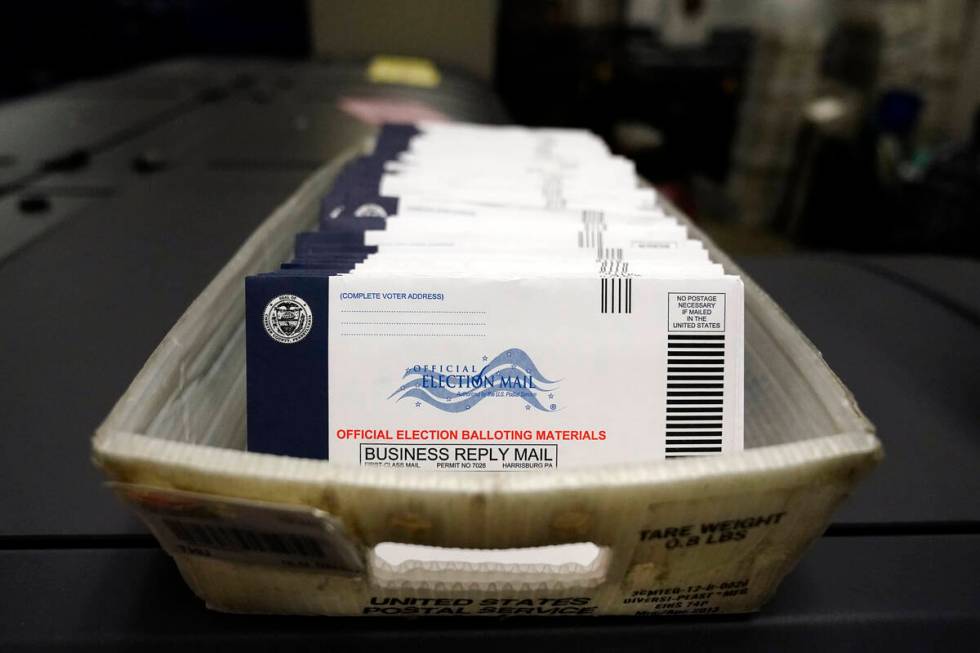COMMENTARY: Women can decide issues for themselves

The 2024 election was the first time I voted in a presidential election. I was excited to vote, fueled by childhood memories of going to vote with my mother in the firehouse near our home.
There was also a growing anger and disgust coupled with this excitement. In my Pennsylvania home, political advertisements played around the clock on television. Most of them fell into the background noise, but others, targeted at women, stood out.
The advertisements were condescending, implying I could not be trusted to make the “right choice” in this election. It was deeply insulting to hear a tone that belittled my decision-making ability, suggesting that I was uninformed. No matter who you voted for, this dangerous rhetoric promotes division, deepening political polarization.
Women have fought long and hard for the right to vote. The 19th Amendment, ratified in 1920, granted women the right to vote, but full participation in the democratic process was not immediate. By the 1984 presidential election, women surpassed men in voter turnout, marking the beginning of what political analysts dubbed “the gender realignment of American politics.” Today, women vote, hold elected office, actively engage in political advocacy and even run for president.
The rhetoric surrounding the 2024 election felt like a troubling step back. I heard my rights would be taken away, and I would become a second-class citizen. I heard that I had to vote to save democracy and protect women’s reproductive rights. Of course, this was framed as a choice, but the message was clear: There was only one choice for president if I, as a woman, wanted to continue living my life in this country.
This was prominent in advertisements heard at my home. The most controversial of these ads was “Your Vote, Your Choice.” The ad was oddly paternalistic, implying that women were uninformed and vulnerable — unable to make decisions without external pressure. It goes as far as to suggest that women should fear the men in their lives if they choose a different candidate.
Domestic violence is a real issue that should not be reduced to a punch line in a political ad. Women do not need to be reminded that our ballots are secret; we know whose choice it is when we step into the voting booth.
Throughout this election, what I found most troubling was the underlying message that voters — particularly women — were uninformed. This narrative must change. Moving forward, I hope there will be a shift from the kind of political messaging that belittles voters and undermines their autonomy. We need a discourse that respects all voters as informed, independent individuals capable of making thoughtful, well-considered decisions.
In the 2024 election, women demonstrated their status as an active, informed coalition by splitting their tickets. In states where abortion rights were on the ballot, many voted to protect and enshrine those rights, even while supporting candidates whose positions on abortion were seen as less supportive. This behavior demonstrates a nuanced approach to voting, where women considered specific issues and other political factors in their overall voting decisions.
I am not afraid to voice my opinion, and I do not need to be “rescued” by any political party. The subtle attempts to exploit women and women’s issues in the 2024 election will, without a doubt, contribute to the ever-growing polarization in the United States. The election cycle was framed as a contest between competing identities — “boys versus girls” — and it’s hard to see how this kind of gendered rhetoric moves us forward. At its worst, it risks deepening partisan divisions, not bridging them.
Women have fought for the right to vote for more than a century, and we continue fighting for equality and autonomy. We are voters — fully capable of making our own choices. It’s time the political establishment acknowledged this and stopped treating us as anything less.
Charlotte LaMagna is a public policy and public service student at Hofstra University. She wrote this for InsideSources.com.